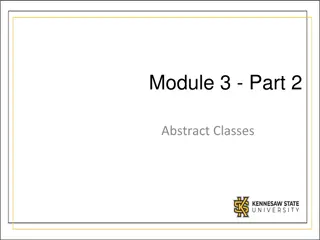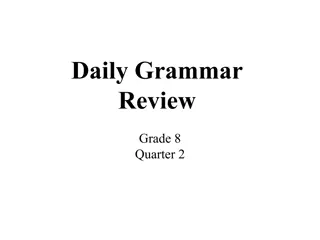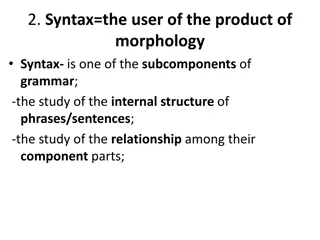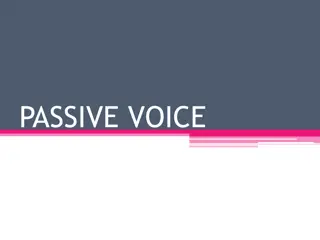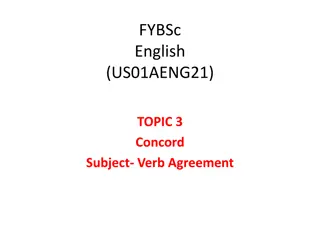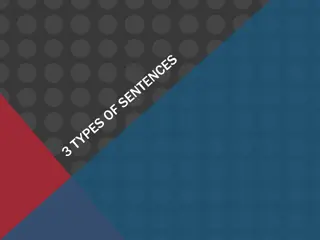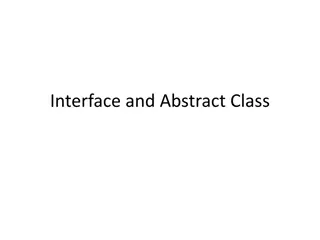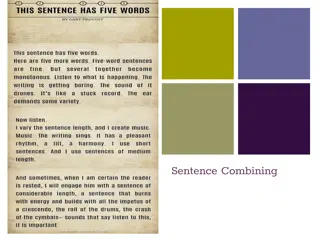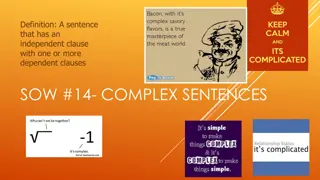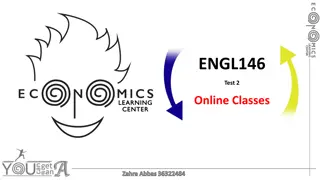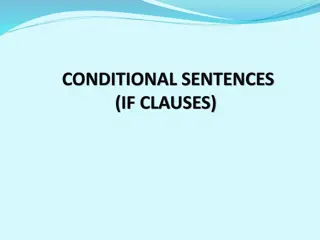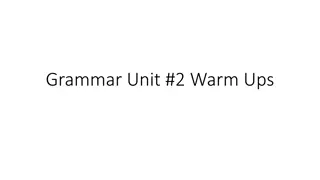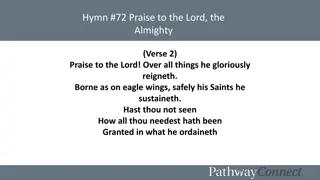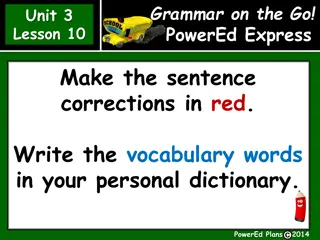Understanding Completing Sentences in English Grammar for Classes 9-10
Delve into the concept of completing sentences with Assistant Teacher Z.M. Akhtarul Kabir from Wazuddin High School. Learn the definition, rules, and examples of completing sentences with various tenses like present indefinite, past indefinite, and past perfect. Enhance your grammar skills and ability to construct well-formed sentences.
Download Presentation

Please find below an Image/Link to download the presentation.
The content on the website is provided AS IS for your information and personal use only. It may not be sold, licensed, or shared on other websites without obtaining consent from the author. Download presentation by click this link. If you encounter any issues during the download, it is possible that the publisher has removed the file from their server.
E N D
Presentation Transcript
Z.M. Akhtarul Kabir Assistant Teacher, English Wazuddin High School Kamrangirchar, Dhaka. Presentation for: Classes 9-10 Sub: English 2nd Paper Topic: Grammar ( Completing sentence)
Learning Outcomes: After studied the lesion, we will be able to Tell the definition of the completing sentence. Know the rules of the completing sentence. Complete the incomplete sentence.
Welcome to the class My dear students
Completing sentence When a part of a sentence is completed with a clause or a phrase is called a completing sentence.
If + present indefinite, present/ future indefinite tense. or, If + present indefinite tense, sub+ shall/will/ can/may/ must/should/have to/has to+ present form of main verb.
Example: If it rains, I shall not go out. If he comes in time, we will help him. If you are late, you will miss the class. If you kill your time, you will not shine in life/you will repent afterwards. If the sky is cloudy, it may rain. If you have a ticket, you can get into the train. If you want to remain healthy, you must/should eat a balanced diet. If you heat water, it turns into vapor. If we want to prosper in life, we have to work hard.
If+ past indefinite tense, past conditional. (If+ past indefinite tense, sub+ would/ could /might+ present form of verb+ obj.) Example: If I knew his address, I would meet him. If I lived near our college, I could reach college earlier. If I were you, I would help the poor. If I had the wings of a bird, I would fly in the sky. If they wanted, we would help them. If I were a king, I would help the poor. If the students were interested, I would teach them English.
If + past perfect tense+ perfect conditional. (If+sub+ had + v3+obj +,+ sub+ would/could/might + have+ v3+ obj.) Example: If I had seen him, I would have told him the matter. If you had followed my advice, you would have passed the exam. If they had started earlier, they could have got the train. If she had tried, she would have succeeded.
Had+ sub+ past participle form of verb + obj+, + sub+ would have/could have/ might have + past participle form of verb + object. Example: Had I seen him, I would have given him the news. Had he wanted, they would have helped him.
More example: Had he possessed a vast property, he would have established a college. Had I earned much money, I would have help the poor. Had I been invited, I would have join the party. Had you forbidden me, I would have never gone there. Had I done well in the examination, my parents would have become very much happy with me.
It is time/ It is high time + to + present form of verb. It is time/ It is high time+ for+ ob+ to + present form of verb. It is time/ It is high time + sub+ past form of verb+ object. Example: It is time to start the work. It is time to leave the place. It is time for us to attack the enemy. It is time we went home. It is high time we changed our eating habits. It is high time they started for the station.
e Sub+ verb+ obj+ so that + sub+ can/could/may/might + verb(base form) + obj. We eat so that we may live. He worked hard so that he could succeed in life. He is working hard so that he can do well in the examination. We should inspire the students so that they read books more and more. We must eat a balanced diet so that we can remain healthy. We should take rest so that we can lead a healthy life. We must work hard so that we can shine in life.
So. That: Sub + verb+ so+ adj/adv + that + sub + can/ could + not +verb base form + extension Example- He runs so fast that I cannot overtake him. She spoke so quietly that I could hardly hear him.
More Examples- He is so weak that he cannot carry this load. The car was moving so fast that we become nervous. The man was so weak that he could not walk. The wind was so strong that I could not go out . Time is so valuable that we should not waste it. In youth the mind is so soft that we can mould it in any desired form.
Lest: Subject +verb+ object + lest + subject+ should + verb+ object. She ran fast lest she might miss the train. Walk fast lest you should miss the bus. Walk slowly lest you should stumble. Hurry up lest you should miss the plane. Study attentively lest you should fail in the exam.
Excercise: If a man does not work hard, .................. If we are not healthy, ................................ If a man does not take rest after a work, .. If a student wants to do well in English, ........... If we lose the morning hours of life, ............. ........................., we will suffer a lot. If we remain lazy, ....................... If I reached late, ..........................



